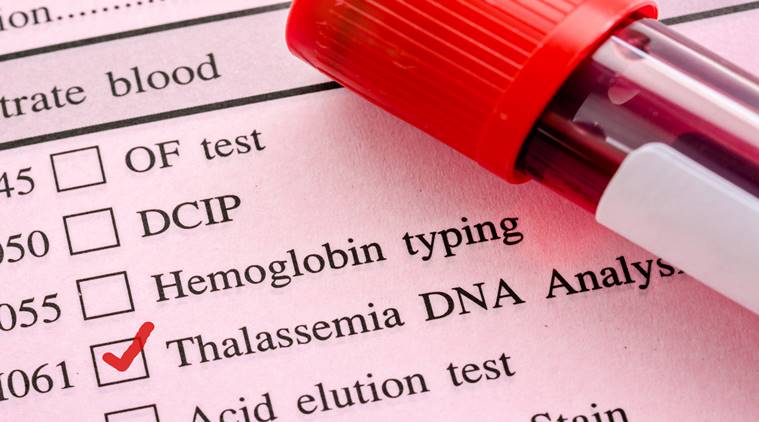
Thalassemia (or Mediterranean Anaemia) is the most common monogenesis disease affecting people across the world. This debilitating disorder, characterised by abnormal production of haemoglobin in the body, is a silent killer. Annually, nearly 70,000 babies worldwide are born with Thalassemia Major, out of which around 10 thousand are born in India.
The tragedy is that most of these children succumb to cardiac complications at an early age. The heartbreak suffered by their families is another tale of anguish. Added to this, is the significant economic burden on the families as conventional treatment such as life-long blood cell transfusion, iron chelation therapy or splenectomy (surgical operation to remove the spleen) are hugely expensive.
To prevent the above, Dr Rahul Bhargava, director, blood disorder clinic and bone marrow transplant at Fortis Memorial Research Institute, Gurugram says it is critical to understand thalassemia and its management during pregnancy.
On World Thalassemia Day on May 8, which is observed every year to create awareness about the condition and commemorate patients and their parents, he suggests a few ways to manage the condition.
*To save both the mother and child with thalassemia, a combined treatment and prevention program during pregnancy is imperative. In recent years, the effort has moved beyond palliative management of the disease to tackling the genetic defect involved in its pathogenesis or the manner of development of the disease.
*As the first step, preconception genetic counselling of both parents is strongly recommended and must be done as a universal policy for all patients, with or without thalassemia. In case, this counselling is avoided, there is a significantly heightened risk of maternal complications such as cardiac failure, viral infection, thrombosis, diabetes mellitus, hypothyroidism or endocrinopathies.
*Further, tests conducted on both parents will help identify and treat thalassemia effectively. In case the parents have no history of thalassemia, there is no cause for worry. However, if one parent is Thalassemia Major and the other Thalassemia Minor or both are Thalassemia Major, the chance of the foetus having thalassemia is high. Once the probability of thalassemia in the foetus is derived, precautionary measures are taken.

For the comprehensive management of thalassemia, a three-phase plan is followed:
*Pre-pregnancy: Adequate management of iron overload is assessed. Cardiac stress, echocardiogram and holter monitoring (recording the heart’s activity) is done on a regular basis along with assessment of endocrine, bone and liver function. Appropriate vaccinations are given for maternal and foetal well-being. Proper screening for red blood cell antibodies is required and folic acid is a must.
*During pregnancy: A series of ultrasounds are required to monitor growth restriction along with cardiac, hepatic, thyroid and diabetes monitoring and prescribed medication.
*Post delivery: Restarting iron chelation, calcium and vitamin D, bisphosphonates (post breastfeeding) plus consultation with the concerned doctor.
In the case of high-risk parents, invasive prenatal diagnosis is the way forward. This must be followed by a close management and monitoring of maternal and foetal condition during pregnancy, in consultation with the obstetrician, haematologist, cardiologist and other concerned specialists.
Blood transfusion for pregnancy patients, based on foetal growth, maternal general and cardiac status and total haemoglobin level is done. Patients with a history of recurrent abortions or increased risk of thromboembolic events (where clots may develop in the brain, lungs or kidneys) may be considered for stroke prevention or anticoagulant therapy all through pregnancy. Prophylactic dose anticoagulant therapy is also very important.
Thalassemia free India is a very real possibility. To achieve it, focused, backward planning and awareness generation is the need of the hour.